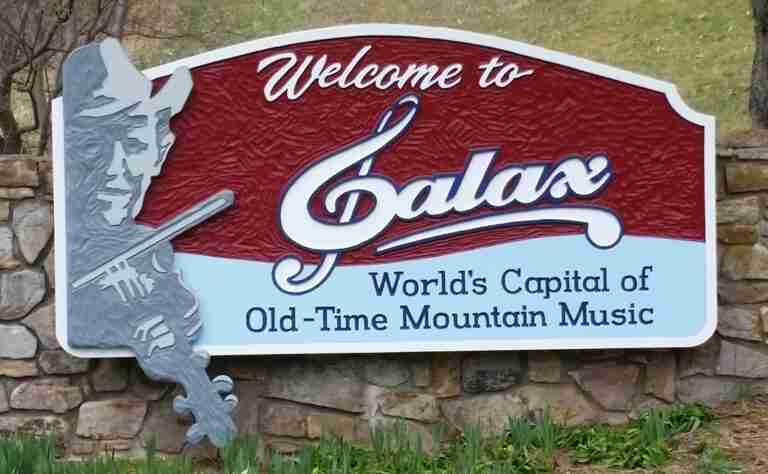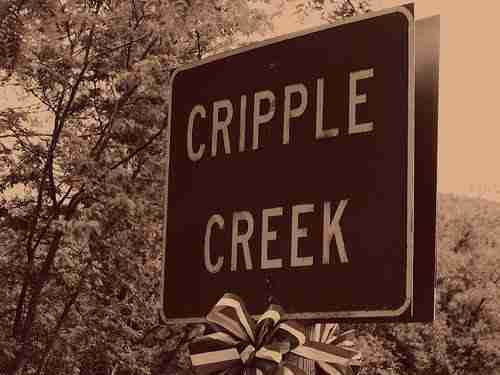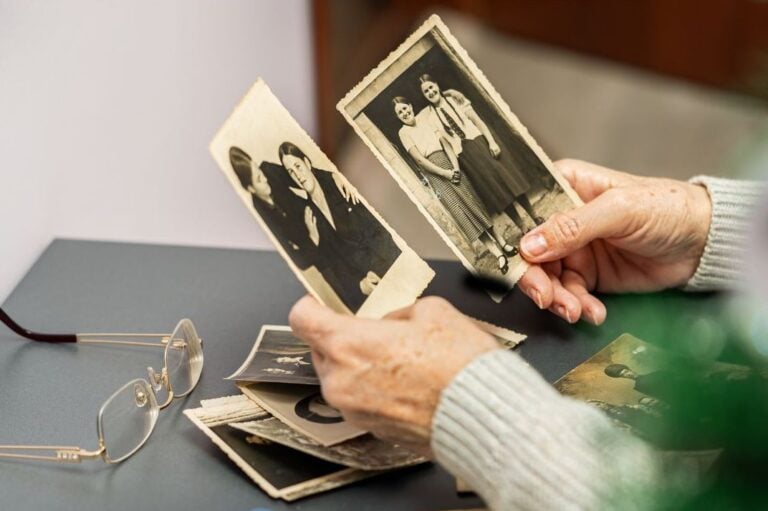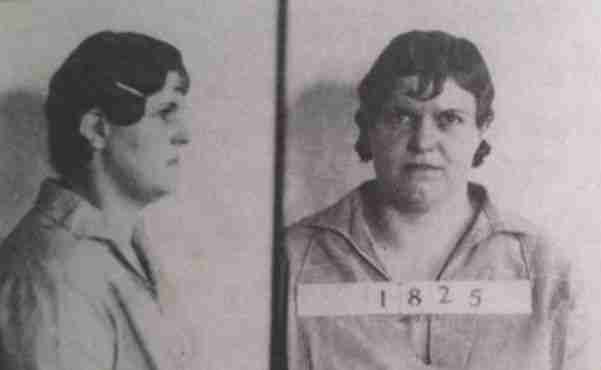The Saltville Muck Dam Tragedy
An installment in our Appalachian History and Culture series
Background: The Saltville Muck Dam broke around eight o’clock on Christmas Eve,1924. The dam held back a pond filled with 27 years of chemical waste released by the Mathieson Alkali Works. When the dam broke, a 100-foot-high wall of toxic sludge cascaded down the Holston River, destroying homes and farms, killing 19 people, and rendering the river lifeless for decades.
This story is my reimagining of events surrounding the Saltville Muck Dam collapse. The incident and its facts are true, but my narrative is fictional. Some names have been changed, and characters have been created to capture the suddenness of the tragedy. My protagonist is a World War One veteran with shell shock, what we now know as PTSD. For more information about the incident, refer to the 1988 article in the Clio.

Christmas Eve, 1924
The Saltville Muck Dam Broke at Eight O’Clock.
Thirty acres of alkaline industrial waste—made up of plaster-like white slurry, cinders, and pieces of the dam—charged downhill, pulverizing everything in its path with force sufficient to throw fifteen-ton boulders hundreds of yards. This colossus of muck—the holding pond was one hundred feet deep in places—arrived at the bottom of the hill with such power that it blocked the North Fork of the Holston River, sending the flood upstream and toward the town below.
Below the dam, the village of Palmertown was making merry. The Fewell family was hosting a party for twenty children; George McReady and his wife were decorating a Christmas tree, their children in bed. J.H. Scott entertained his brother from Roanoke; Mr. and Mrs. Robert Fuller, their new baby, and Mrs. Fuller’s siblings sang Christmas carols. Hiawatha and Leona Prater were preparing to go to the movies—Leona proudly wearing her new red wool coat—when Leona’s mother and sister arrived for a visit. They had not yet removed their coats when the muck horror carried them away.
I was at Smith’s store listening to G.L.’s new radio, along with Jimmy, Odell, Curt, and a few of the boys. I stopped along the way and picked up a demijohn so we could sip corn and tell stories as we listened.
As the show was wrapping up, we heard a loud “bang” that rattled the windows. I flinched so hard I damn near fell over in my chair.
Jimmy thought that was funny. “Look out, Duck! The Huns are comin’ to get ya!”
Jimmy’s laughter spread throughout the group, and I blushed, embarrassed and angry. I struggled for a response, but the best I could do was mutter, “Go to hell, Jimmy.”
Curt placed a hand on my shoulder. “Don’t pay him no mind, Duck. He’s simple-minded and don’t know no better.” To the group, he declared: “You slackers what never made it to France got no right to poke fun at a man’s been to war and come back a hero.”
Chastised, the group quieted to listen to the show’s end. Eight chimes sounded, and the broadcast was halfway through the Lord’s Prayer when the front door slammed open so hard a can fell off a shelf. I recoiled at the “pop” the can made when it hit the floor.
It was Mrs. Smith. Between gasps of breath, she exclaimed, “My goodness, boys, run quick! The muck dam has broke, and we’ll all be washed away.”
We sat in stunned silence for a moment, and that’s when I heard it: a distant whooshing, a steady rumble, the sound of timber cracking, voices shouting.
We stood quickly and ran for the door. Jimmy stood so fast he knocked over his chair; I tripped over it in my rush to get out. My right knee doesn’t bend too well, you see. As I got up from the floor, I saw Jimmy go through the door, then saw a dark blur and heard him cry out. In the light spilling from the door, I saw Jimmy sprawled on the ground, his head opened up like a dropped Mason jar.
I stepped around him as panic gripped me. In my first breath, my nostrils filled with the acrid smell of industrial waste, and my lungs began to burn. Instinctively, I reached for my gas mask, but it wasn’t there. Confused, it took me a moment to realize that I was in the Blue Ridge Mountains of Virginia, not the Argonne Forest of France.
I searched the skyline for the one-hundred-foot-high dam that sat across the river above the town, but it was gone. In its place was a moving behemoth: a one-hundred-foot high, three-hundred-foot wide wave of alkaline muck. In the faint moonlight, I could see it consuming everything in its path: trees, homes, wagons, people.

I ran. A light rain was falling, freezing as it hit the ground. My gait was more a hobble than an all-out run; every five or six strides, I would slip on the icy ground and have to regain my footing. Fear propelled me forward, and images of war filled my imagination:
I’m in the Argonne, engulfed in chemical smells and cries for help. Run. I must run for my life.
I couldn’t out-pace the movement of the muck, and despite traveling uphill and away, I was soon sloshing through the white sludge. When it reached my knees, I could no longer maintain my balance. There was just a sliver of a moon; I moved about in a world of shadows and searched in vain for something to hold on to.
“Something to hold on to” found me instead. I was full-body-slammed by something large and flat; it spun me around, and as I fell onto it, I was lost in dizziness. When my mind steadied and my eyes adjusted, I found I had fallen onto a barn door. It had split in half; I lay across it spread-eagle on my stomach, arms and legs dragging in the river of muck. I pulled them out of the muck and onto my uncertain craft. I held tightly to the edges to keep it from flipping over. I was carried along by the muck stream, headed back toward town.
Cries for help penetrated the darkness, but I could do nothing to respond. I shook uncontrollably; I had forgotten my coat and hat in my hurried flight from Smith’s store, and the freezing rain had soaked through my shirt. My trousers were caked in muck, and my legs were burning. My forearms and hands ached from gripping the edges of my raft so tightly. I raised my head to check where I was. Still, my position was impossible to determine: landmarks had been washed away, and the sky was filled with debris clouds from the shattering torrent. Wailing, I closed my eyes, released my grip on the raft, drew my legs up, crossed my arms over my head, and curled into a ball. Fear overwhelmed me, and with the fear came a frightening flood of buried memories:
I was curled up in an artillery crater, eyes closed, shaking. Around me, I could hear trees splintering and men crying out. The “thwip-thwip” of bullets continued steadily overhead, punctuated by the whistle and boom of artillery shells. A familiar voice called to me, whether from a dream or chaos, I didn’t know.
“Move out, soldier!” The voice was not mine. “Are you hit?”
I couldn’t muster a sound, nor could I move. A hand shook my shoulder.
“Hey, I said, are you okay? We have to move; hey!”
Curt shook me and called my name insistently. “Duck! Tom! Tom Allen! Hey, you okay, buddy?” I opened my eyes, expecting to see field medics and a stretcher. I was pleased to see a familiar face instead. I sat up, shakily. My shirt was frozen to my skin, and my trousers seemed covered by hardened plaster. Shivers passed through me in waves. I coughed to clear the congestion from my lungs, but nothing came up.

Though barely dawn, the light from behind the mountains reflected from the white-covered ground. Had it been snow, it would have been a beautiful sight, but I knew it was not snow. It was the destroyer of a community, the killer of children.
My raft had come to rest in a pile of uprooted trees and brush. Limbs were coated with muck, and frozen drips created a web between branches. A fully decorated Christmas tree, a jumble of wrapped gifts, and some toys were caught in the frozen screen. Several houses seemed to be piled atop one another and were on fire. A two-story house teetered in the muck, held up by a pile of drifted debris; a rooster stood on top, crowing away.
What appeared to be the headlights of several cars were scanning the muck field, but I didn’t see how this was possible since the road had washed out. Rescuers were wading through the muck, poking the bottom with sticks in search of bodies; others walked the perimeter, calling out the names of loved ones. Others pushed jon-boats so they wouldn’t have to carry victims. Curt had a jon-boat, and he and two other men lifted me into it and covered me with a blanket. I was to be taken to a makeshift first-aid station; there were no hospitals in Saltville.
We moved in silence. The destruction was complete; the sights ghastly. As we passed what was left of the Prater home, I saw a red patch in the white muck, marking the spot where Leona’s body lay. The caustic muck had caused the dye to leach from her new red wool Christmas coat.
More Appalachian History & Culture
Find more stories from the region’s past on the History and Culture page.
Appalachian History and Culture Collection
Enjoying Blue Ridge Tales? I hope so. If you’d like to help keep the site ad-free and the stories rolling, you can buy me a coffee.
To stay connected, subscribe to my Blue Ridge Tales newsletter, and have stories and updates delivered once a month to your inbox.






